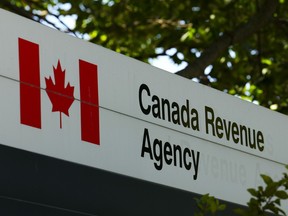He may be able to file under the Voluntary Disclosures Program (VDP). According to the Canada Revenue Agency (CRA), “the VDP grants relief on a case-by-case basis to taxpayers and registrants who voluntarily come forward to fix errors or omissions in their tax filings before the [CRA] knows or contacts them about it.”
If your boyfriend owes tax, he will still have to pay it, but the late-filing penalties, and some or all of the interest, may be waived.
If you live together, you are probably considered common-law by the CRA, Alison. That’s because the agency’s definition of common-law includes partners living together in a conjugal relationship for at least 12 consecutive months. In the year you hit that 12-month mark, you should file your tax return as common-law. And you should notify the CRA by the end of the month following the month your status changed.
Common-law tax benefits
Here are some of the impacts of filing as common-law spouses:
- Eligibility for some government benefits is based on family income instead of individual income
- Common-law spouses can combine medical expenses and donations and may receive a larger combined tax savings than when filing as single individuals
- If their income was low, partners can claim a tax credit known as the spouse or common-law partner amount
- Spouses can contribute to a spousal RRSP
- Spouses can split eligible pension income
In your case, Alison, your boyfriend’s low income in 2020 and no income since then may entitle you to claim the above-mentioned spouse or common-law partner amount as a tax credit. The savings for 2024 are up to $2,356 federally and between $532 and $2,189 provincially depending on where you live.
However, if you are receiving benefits like the Canada Child Benefit, GST/HST credit, Canada Carbon Rebate (formerly known as climate active incentive payments), or Guaranteed Income Supplement (GIS), there may be a change in these benefits if you update your filing status to common-law.
Why to get caught up on your taxes
Eventually, your boyfriend will need to get his taxes sorted and up to date, Alison. It is better to do so voluntarily, as opposed to having the CRA assess large penalties and interest. If your boyfriend lives with you and is supported by you, his financial situation has a direct impact on yours. It also has an indirect impact to your tax return and government benefits.
When you file your tax return, you certify that the information given on your return is correct, complete and fully discloses all of your income. As such, you should file your tax return accurately, Alison, despite your boyfriend being behind on his own returns.





















Discussion about this post